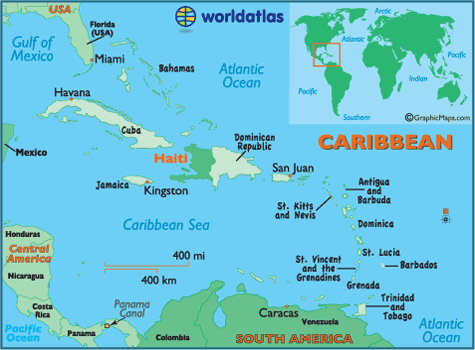I am currently thinking about joining the shortwave radio community, and know that if I was going to operate one in the U.S., I would need a license to operate in a certain range. But I am not living in the United States, I am living in the island nation of Haiti (located in the Caribbean, I hope this picture is not copyrighted):
I have tried to find any laws, but can't find anything on it. But all in all, I don't want the authorities showing up at my door, asking for a license.
